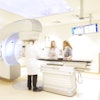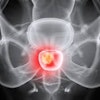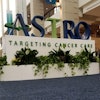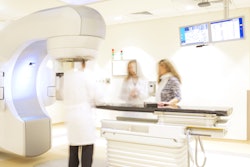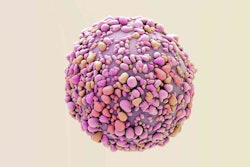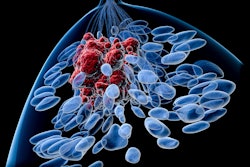A shorter course of postmastectomy radiation combined with breast reconstruction is safe and effective, according to a study presented September 30 at the American Society for Radiation Oncology (ASTRO) annual meeting in Washington, DC.
In his talk, Matthew Poppe, MD, from the University of Utah in Salt Lake City, presented his team’s findings, which demonstrated that an abbreviated radiation therapy course does not increase complications for patients who undergo breast reconstruction following a mastectomy.
“The results of this trial show we can safely reduce treatment time for these patients to three weeks, without compromising their reconstruction,” Poppe said in a prepared statement.
Standard radiation therapy for breast cancer takes place over five to six weeks. However, recent studies have highlighted the potential of shorter treatment courses in effectively treating cancer and improving quality of life. However, concerns about higher radiation dosage have prevented some women from being eligible for abbreviated courses.
Poppe and colleagues designed the RT Charm trial to find out whether women undergoing shorter treatment courses experience more complications and side effects. They enrolled 898 women who presented with unilateral invasive breast cancer at 209 academic and community-based cancer centers across the U.S. and Canada. The team included women with larger tumors (pT3N0) or smaller tumors and invasion of the regional lymph nodes (pT0-2 pN1-2).
The researchers randomized the women into two cohorts: one received conventional radiation consisting of 25 fractions delivered across five weeks (50 Gy total; n=449); the other received hypofractionated radiation consisting of 16 fractions delivered across roughly three weeks (42.56 Gy total; n = 449).
Among the 650 women who completed reconstruction during the study period, 59% had implants alone and 41% had autologous reconstruction using their own tissue, with or without implants.
Two years after reconstructive surgery, 14% of women who underwent the shorter radiation course experienced complications compared with 12% of those who underwent standard treatment. The researchers noted that treatment-related side effects were equally mild for both groups.
Also, regardless of treatment schedule, women experienced fewer complications following autologous (8.7%) versus implant-only reconstruction (15.5%; p = 0.0043). Within three years of treatment cancer recurrence occurred in 1.5% of women who received the shorter course of radiation compared to 2.3% of women who underwent standard treatment.
Poppe said that with the shorter treatment course, women can save on time and costs, which could especially be beneficial for women who must travel long distances. The researchers added that they hope their findings will encourage more cancer centers to adopt shorter radiation treatment courses for any woman who has a mastectomy.

